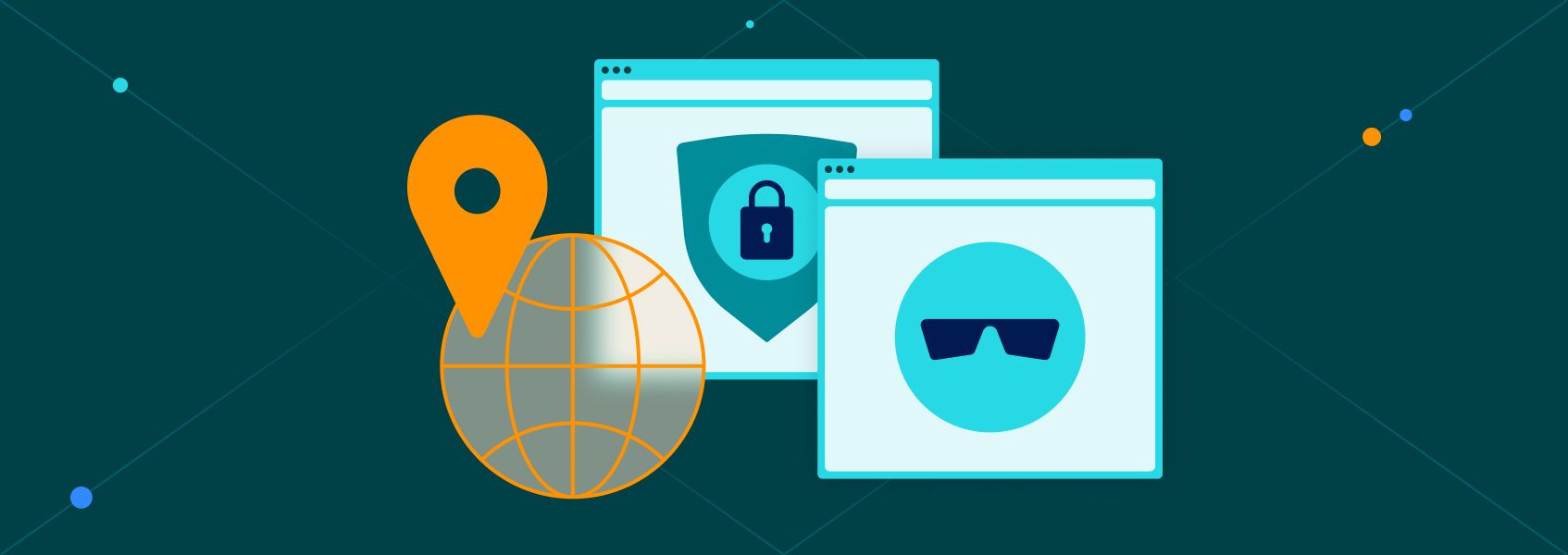What Are Proxies Used For? 8 Common Proxy Use Cases
Proxy fundamentals

Milena Popova
Key Takeaways
-
A proxy server acts as a middleman that hides your user's IP address to keep your browsing private.
-
Businesses use web proxies for scraping, ad verification, brand protection, and more to gather data without getting blocked.
-
Proxies help with accessing restricted content by changing IP addresses so you look like a local user.
Using an IP address different from your own is a good idea for several reasons. Proxy servers give users greater control over internet access, enabling more efficient web scraping, ad verification, price monitoring, and other use cases.
What Is a Proxy Server and Why Do People Use It?
A proxy server is like a middleman for your computer or another device. When you want to visit a website, your computer sends web requests to the proxy server first. The intermediary server then communicates with the website, using its own IP address, so the website never sees yours.
People use a proxy server for many different reasons. Some want to keep their sensitive data secure, while others want to access websites that their school or work might block access to. It helps manage network traffic and makes sure your web traffic stays private.
Most Common Proxy Use Cases
Web Scraping
Automated data gathering from websites and other online sources is called web scraping. Companies and individuals use it for various purposes, including market research, lead generation, price aggregation, and more.
Most websites limit the number of requests from a single IP address. Since proxies replace your IP with their own, they’re the most efficient tool to bypass all IP-based restrictions. With anonymous proxy servers, scrapers can send requests from different IPs in different locations.
Since all these requests look like they come from genuine visitors, it becomes more difficult for websites to recognize and block the scraping activity.
SEO Monitoring
Search engine optimization is crucial for most modern businesses, regardless of their size. Only 0.63% of people visit the second page of Google search results. So, it’s no surprise that SEO monitoring recently became one of the most significant proxy use cases.
A high rank in search engine results brings organic traffic and new clients. More importantly, it builds long-term brand awareness and increases revenue. To maintain this rank, businesses must check search engine result pages (SERPs) regularly and keep an eye on rival websites.
Proxy servers allow anyone to replicate searches with different IP addresses from different locations. This practice provides valuable SEO performance insights. By analyzing this data, businesses can modify their SEO strategy as necessary to ensure they’re where their clients are.
Ad Verification
Companies spend a lot of money on ads, but sometimes those ads don’t show up correctly or are misrepresented. Businesses can use a proxy server to verify that their ads display as intended. By changing IP addresses, they can look at their ads from different cities to ensure functionality and legitimacy.
It helps businesses ensure ads are placed in suitable environments and in the right geography, preventing wasted budget and brand damage from ad fraud.
Brand Protection
Criminals often try to sell fake products using a famous brand’s name. Companies use an anonymous proxy to identify websites where such fraud is happening. Proxies let them find people who are stealing their ideas or lying about their products. They can then restrict access to these fake shops to protect their customers.
Price Intelligence
Stores change their prices all the time based on who’s looking and from where. A proxy server lets a business see the prices people in other countries are paying. They send web requests from multiple locations to compare costs, helping them set their own prices to stay competitive.
Accessing Geo-Restricted Content
Many websites and online services are only available to visitors from a specific country. Authorities, institutions, and ISPs can censor certain websites, like search engines, social media platforms, and more. While there are usually legitimate reasons behind geo-blocking (copyright and licensing limitations), it’s often prone to abuse.
Residential proxies offer the easiest way to get around these limitations. It’s as simple as getting an IP address in the correct location. By employing a proxy from a country where the content is available, businesses and individuals can access it safely and privately.
Online Privacy
Online tracking has become a growing concern in recent years. The reason behind this trend is obvious. Google alone tracks 76% of all online traffic - it’s the biggest tracker, but not the only one. Amazon tracks 17%, followed by Facebook at 16% and Microsoft at 8%.
With so many companies trying to get user data, maintaining online anonymity has become one of the most common proxy use cases. Businesses, NGOs, researchers, journalists, and others can access the internet anonymously with proxies. As the proxy handles all traffic, it also takes on the burden of tracking, keeping the user’s online activity private and untraceable.
Social Media Management
Managing multiple accounts on a single site can be challenging. Social media sites might block access if they see too many accounts on one user’s IP address. A proxy server gives each account its own unique identity, which allows managers to post and chat from different accounts without getting banned.
Not All Proxies Are the Same
Using the first proxy you come across is far from a good idea, however. There are countless free proxies online, but do they offer the privacy and the features necessary for safe internet access?
The answer, in most cases, is a simple “no.” After all, you’re trusting an unknown entity with your most sensitive data. Besides, not all proxies are fit for all purposes. If you’re looking for a hassle-free experience without compromise, make sure you do your research and select an ethical proxy provider with a good reputation.
Which Proxy Type Is Best for Each Use Case?
| Use case | Best proxy type | Why |
|---|---|---|
| Web scraping | Rotating residential | They use household IP address pools and change often to avoid blocks |
| SEO monitoring | Residential or ISP | Good for sending many web requests to search engines |
| Ad verification | Mobile proxies | They look like real phone users, making it hard for fraudsters to hide |
| Brand protection | Datacenter proxies | Fast and cheap, allowing you to monitor lots of websites at once |
| Price intelligence | Datacenter or residential proxies | Datacenter proxies are good when you don’t need localized prices, residential IPs work for all cases, but are more expensive |
| Accessing geo-restricted content | Residential proxies | These easily bypass web filters by looking like a local resident |
| Social media management | Dedicated mobile/ISP proxies | A static user’s IP address keeps accounts safer from being flagged |
Proxies vs VPNs: What’s the Difference?
Both tools help with masking IP addresses, but they work in different ways. A proxy server usually only works for one app, like your web browser. It’s great for tasks like web scraping because it’s fast. A VPN covers your whole device and encrypts all your network traffic.
If you just need to change your IP address for a specific task, a proxy server is usually better. Proxies don’t slow down your traffic as much as VPNs do.
However, a VPN is better if you want to lock down every bit of data on your device. Most people use an anonymous proxy for business tasks and a VPN for personal safety.
Are Proxies Legal and Safe to Use?
Using a proxy server is perfectly legal in most parts of the world. It’s a neutral tool that’s only as good as your intentions are. You can use it for good things, like protecting your data or market research. Problems only start if someone uses an anonymous proxy to break the law, commit fraud, or partake in some other questionable activities.
Safety also depends on who you’re getting the proxy server from. Good providers make sure their web proxies are clean and fast, and they don’t peek at your web traffic or sell your info. Using a trusted proxy server is a safe way to browse and do business.
FAQ
What are proxies used for?
People use them for web scraping, checking ads, protecting their brands, and more. They’re also great for masking IP addresses to keep browsing private.
Are proxies legal to use?
Yes, they’re legal for most activities like research and privacy. Just make sure you don’t use them with malicious intent or to break the site’s rules.
What’s the difference between a proxy and a VPN?
A proxy server works at the app level and is often faster. A VPN protects all your network traffic, but it can be a bit slower.
Do proxies hide your IP address?
Yes, they replace the user’s IP address with the IP address of the proxy server, which hides the user’s original IP and provides more privacy.
Are free proxies safe to use?
Usually, no. Free web proxies often steal your data or slow down your web traffic. It’s always better to use a paid proxy server from a company you trust.

